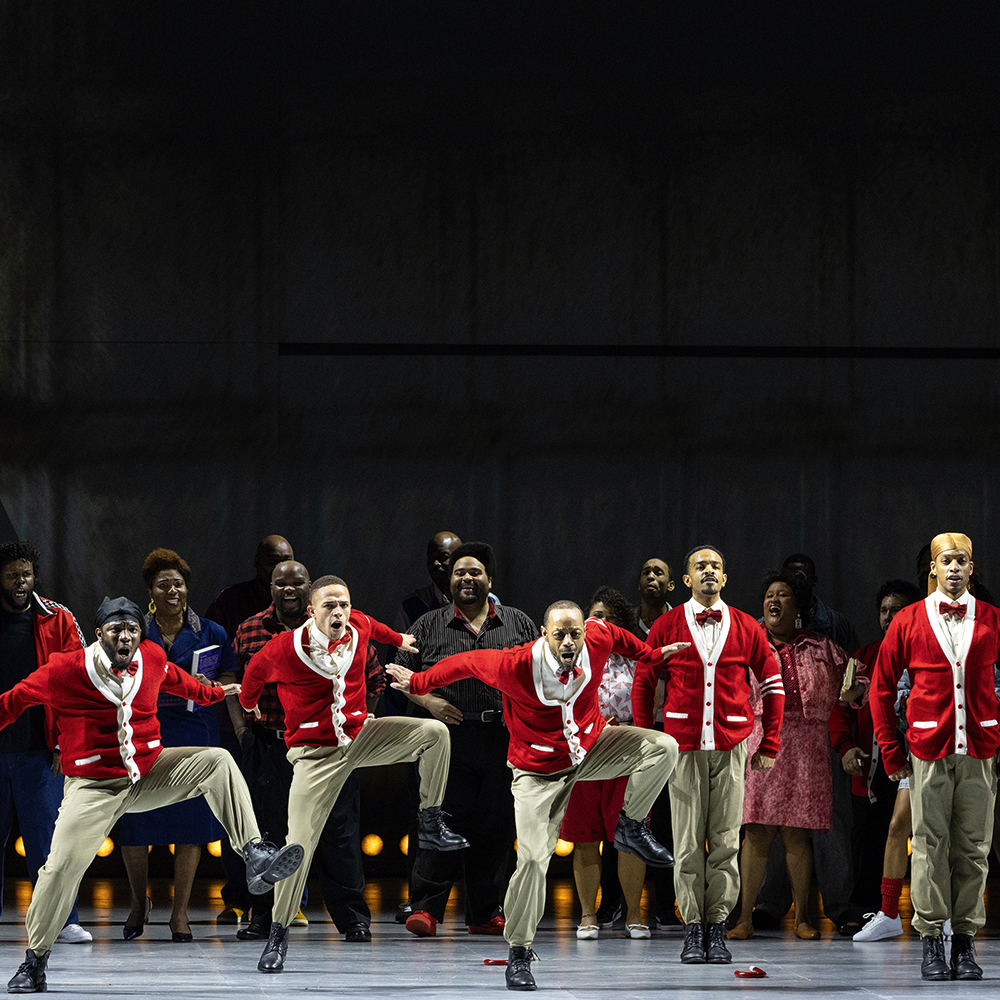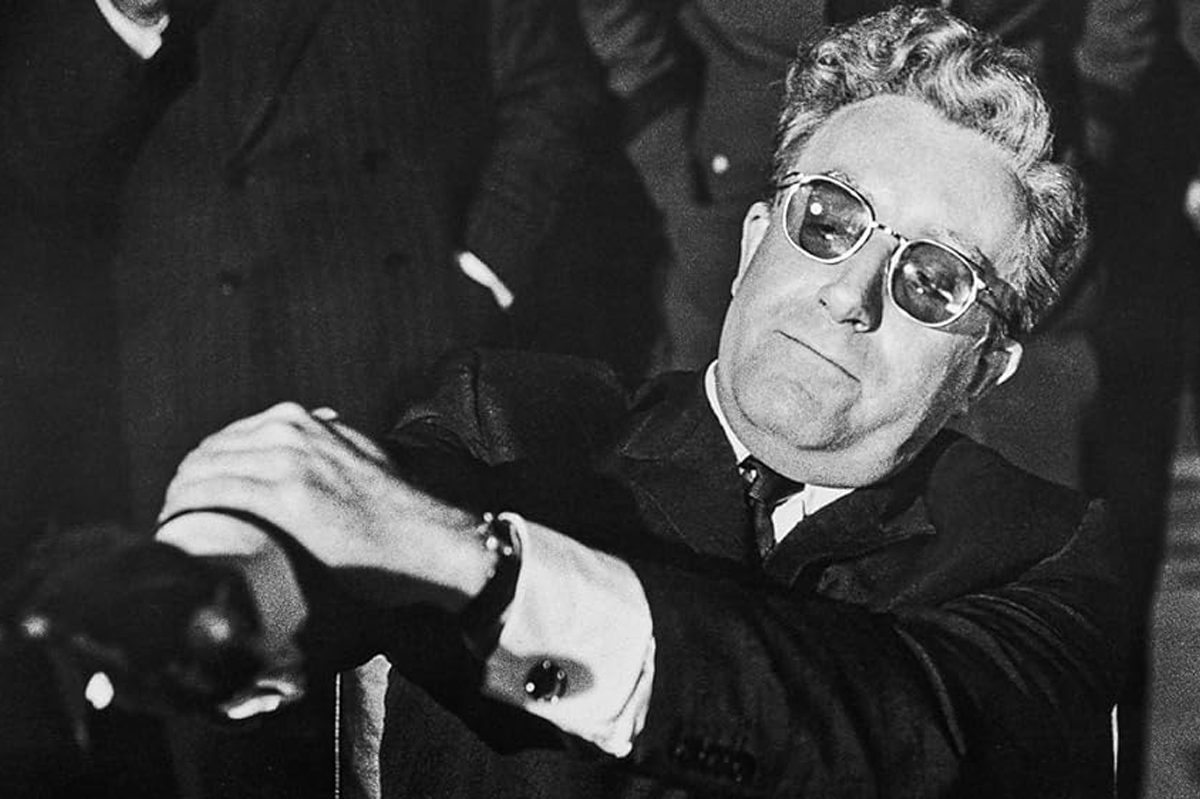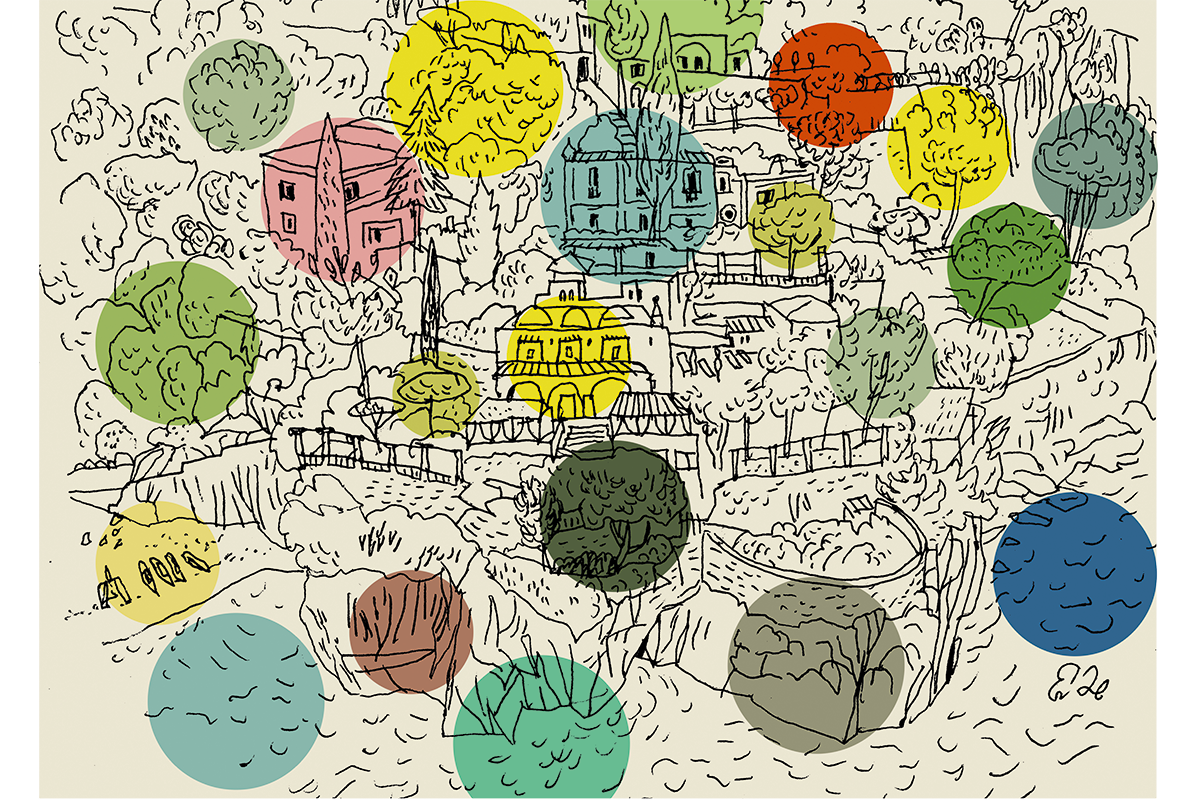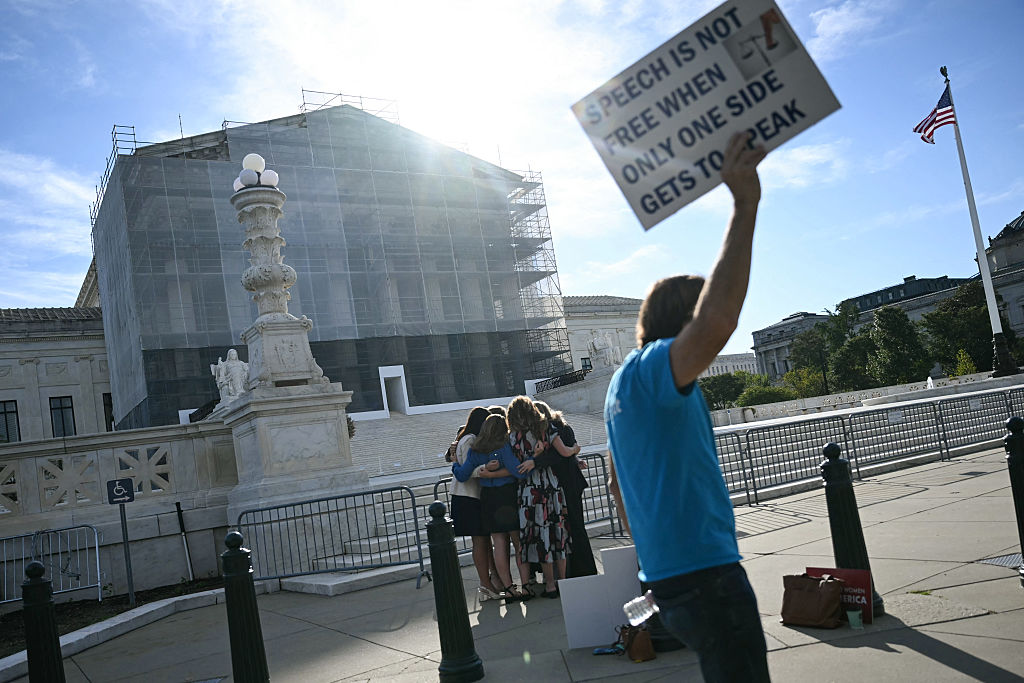The Metropolitan Opera has been in the hole for years and for most of that time company leadership has pleaded ignorance as to why. Just this February, general director Peter Gelb lamented audiences’ lack of interest in the Met’s slate of contemporary operas. “It’s impossible to predict hits,” said the man paid $1.4 million a year to, well, predict hits.
In its 2025-26 season slate, the Met finally seems to be wising up – but it faces an uphill climb. For the better part of a decade, the company has been financially unprofitable, artistically boring and actively hostile to its audience.
‘It’s impossible to predict hits,’said the man paid $1.4 million a year to, well, predict hits
In the past four seasons especially, the Met has failed to fill the house or turn a profit. Last year, it sold just 72 percent of its capacity, which was no improvement on the previous year and a far cry from its pre-pandemic peak of 75 percent. For an organization as huge as the Met, those three percentage points represent around 25,000 audience members, or six full houses.
The problem only gets worse the more closely you look at the data. In 2023-24, the Met realized 64 percent of potential income on its tickets sold. In 2024-25, it only realized 60 percent of potential income, meaning that an equivalently sized audience to its 2023-24 audience paid less to be there. And even as the Met discounted more tickets, its number of new ticket-buyers dropped by 13 percent from 2023-24 to 2024-25.
How did Gelb react when these disheartening results were announced in June? By blaming Donald Trump, of course. Attendance during the 2024-25 season, Gelb said, “dropped slightly following the Trump administration’s immigration crackdown.” Conveniently, he avoided mentioning that the Met’s sales for the first half of the season, when Trump was not yet in office, were worse than its second-half results. In the same statement, Gelb preemptively blamed stock market uncertainty for disappointing ticket presales for 2025-26.
Smart observers should always smell a rat when a CEO blames short-term market headwinds for long-term underperformance, and that wisdom holds true here. The fact is that the Met has been consistently underperforming for most of Gelb’s two-decade tenure.
Why? For a range of reasons. Some are structural challenges facing the opera industry in general. But the comparatively stronger performance of many American opera companies during the same period suggests that a large portion of the blame should be placed at the doorstep of the Met’s musical and executive leadership.
Among those internal challenges, we must count the own-goals against his business that Gelb seems unable to avoid. He has, for example, refused to drop his ongoing feud with Russian diva Anna Netrebko, once a fixture on the Met Stage and as much of an audience magnet as can be found in 21st-century opera. Since 2021, Netrebko has been banned from Gelb’s Met for refusing to publicly criticize Vladimir Putin over her home country’s war in Ukraine. Not content merely to deprive Met patrons of Netrebko’s artistry, Gelb has periodically accused her of moral cowardice since banning her from the Met, with the unsurprising result that Netrebko is now suing both him and the company for national-origin discrimination.
There was also Gelb’s draconian handling of Covid. The Met was one of the last arts organizations in New York (and therefore in the entire country) to stop requiring audience members to wear masks during shows. They didn’t drop the mandate until October 2022, two and a half years into the pandemic. By putting his audiences through entire evenings of needless discomfort in service of scientifically dubious masking practices once the pandemic had already waned, Gelb probably lost more than a few long-term subscribers.
But these follies fade into insignificance next to the company’s greatest act of self-sabotage: its programming. The biggest reason audiences haven’t come out in recent years is, quite simply, that they don’t want what the Met is selling.
To see how, let’s look again at the data from the 2024-25 season, asking which operas outperformed the Met’s 72 percent average audience – and which underperformed it. First, the overperformers: Mozart’s The Magic Flute translated into English; Verdi’s Aida; Jake Heggie’s Moby-Dick; Puccini’s Tosca; Tchaikovsky’s Pique Dame; and Puccini’s La Bohème.
The underperformers? John Adams’s Antony and Cleopatra; Osvaldo Golijov’s Ainadamar; Verdi’s Rigoletto; the German version of The Magic Flute; Offenbach’s Les Contes d’Hoffmann; and Verdi’s Il Trovatore. Dead last, at 50 percent, was the Met’s commissioned opera for this year and its opening-night production, Jeanine Tesori’s Grounded. One thing we should notice here right away is that on average, classic operas outperformed new ones. The classics were distributed evenly around the 72 percent average – some above, some below. The Magic Flute and Aida dramatically overperformed the average. Among contemporary operas, there was one hit: Heggie’s Moby- Dick. The other three – Adams, Golijov and Tesori – fell not only below the average, but way below it.
This continued a trend observed in the 2023-24 season, during which classics – Mozart’s The Magic Flute; Puccini’s Turandot; and Bizet’s Carmen – outperformed contemporaries. That year, only one contemporary opera outperformed the audience average: Anthony Davis’s X: The Life and Times of Malcolm X. The other four performed abysmally. After that season, Gelb also sounded the now all-too-familiar refrain of ignorance: “If we knew what would result in a sold-out house, everything would be sold out.”
Allow me to help him. There are a few conclusions that should jump out both from this data and from a general survey of the American opera landscape in the year 2025. Maybe they’ll help him learn what will result in a sold-out house.
The overriding principle the Met missed over the past two seasons is that 21st-century audiences come to the opera to escape. They come to bask in stories of high drama, tragedy, whimsy, love. They come for the magical, the mythical, the epic, the irrational, the ancient, for sumptuous sets and lavish costuming. This is why two of the Met’s three best-selling operas over the past two seasons were Puccini’s Turandot and Verdi’s Aida. They are not the best pieces of music the Met put on over that time. But taken together as both musical and visual artworks, they are the most impressive.
What do audiences not come to the opera for? They do not come to stay where they are – in a fractured American society in 2025. They do not come to feel as though they are prowling the mean streets of New York or at home watching the news. They do not come to be guilted. And most of all, they do not come to be bored.
What do audiences not come to the opera for? Most of all, they do not come to be bored
Specifically, they do not come to the opera to hear about the stresses of present-day female pilots who get pregnant (Grounded). They do not come to hear about chic editors, novelists and housewives in New York (Kevin Puts’s The Hours); or the legal proceedings following the rape and murder of a boy and girl in a parking lot (Heggie’s Dead Man Walking); or the life of New York Times columnist Charles Blow (Fire Shut Up in My Bones by Terence Blanchard). Nearly every single contemporary opera put on by the Met that has focused on recent events, current social issues or contemporary figures has flopped.
It also should not escape our notice that three out of four contemporary operas featuring black or Hispanic protagonists flopped. The lack of audience interest in such operas is not, of course, because audiences don’t want operas with minority protagonists. Rather, it’s that the Met, in its zeal to give them minority protagonists, neglected to offer stories that weren’t either unpleasant or boring. When audiences feel that they are being force-fed, they seek entertainment elsewhere.
This is all a great pity, because contemporary opera can be exciting. The great success of Heggie’s Moby-Dick, which deals with a classic American tale of a heroic, tortured soul at sea, proves it. So does the nationwide run of Kevin Puts’s Silent Night, a poignant tale of the 1914 Christmas Truce set to a sumptuously romantic score.
The Met does not need to abandon contemporary opera. What it does need to do is refocus its programming on the types of monumental heroic, tragic or comic stories that audiences come to see. And since the Met is one of the world’s largest opera-commissioning organizations, it can help steer the subjects of operatic composition and libretto writing in the direction its audiences are clamoring for: away from the mundane and toward the marvelous.
A full embrace of that principle alone will enable the Met to slow the bleeding on its ticket sales. But there are a few more principles the Met might glean from recent data. First, purist musicians may not like operas translated into English, but audiences do. It’s no accident that an English Magic Flute was the Met’s most popular show last season. Audiences feel more involved in the story when the singers are singing in their language. The Met should program translations far more often, potentially offering both English and original-language versions of the same show with alternate casts.
Second, John Adams is spent. His brand of pop-minimalism, first used to such brilliant effect in 1987’s Nixon in China, is wearing very thin. If the Met wants to make money, it should stop programming Adams operas. If it must offer some minimalism, Philip Glass’s Einstein on the Beach, Akhnaten or Satyagraha are always good for a reboot.
Third: Verdi operas – other than La Traviata – that don’t lend themselves to colossal staging, such as Aida, are fading in popularity. It’s still no problem to program Rigoletto or Il Trovatore, but it’s best to avoid both in the same season.
Things look to be turning around at the Met this year. The 2025-26 lineup boasts such classics as La Traviata, Porgy and Bess and Madama Butterfly, and only one contemporary opera of dubious interest – Gabriela Lena Frank’s El Último Sueño de Frida y Diego.
Gelb finally seems to be getting the message. Perhaps the Met’s audiences will be willing to give him one last chance. But if he returns to the let-them-eat-cake approach to business that has characterized his last several years at the Met, they won’t be eating it during intermission at the Met Café. They’ll be gone for good.
This article was originally published in The Spectator’s October 13, 2025 World edition.























Leave a Reply